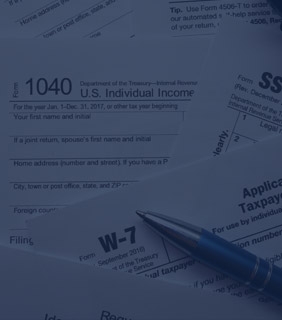IRS to Implement Process to Provide Accessible Tax Notices to the Blind

IRS to Implement Process to Provide Accessible Tax Notices to the Blind

(San Francisco, Ca) Today, as millions of taxpayers file their income tax returns, the IRS is announcing that it has agreed to develop and implement a process to allow blind taxpayers to request post-filing tax notices—such as notices about additional taxes or penalties owed—in Braille, large print, or electronic formats. The new alternative media process (AMP) will be in place by January 31, 2022. The agency will also consider whether it can add audio notices to the alternative formats that can be requested, work with third-party entities to improve the accessibility of tax forms and documents, and take other steps to improve the accessibility of interactions with the agency and its partners.
The actions to be taken by the IRS resolve a lawsuit filed last year by individual blind taxpayers, along with the National Federation of the Blind, alleging violation of Section 504 of the Rehabilitation Act of 1973, which the agency denies. The legal team in the lawsuit included attorneys from Brown Goldstein Levy LLP and Disability Rights California, the protection and advocacy system for the state.
“We are pleased that the IRS has recognized that both the law and fundamental fairness demand that blind taxpayers receive notices that we can read and act upon while protecting our privacy and preserving our independence,” said Mark Riccobono, President of the National Federation of the Blind. “We look forward to continued collaboration with the agency to improve the process of filing and paying taxes in ways that respect the equality of blind people.”
“Everyone should receive information about the taxes they pay in a format that is accessible to them,” said Autumn Elliott, senior counsel at Disability Rights California. “We are thrilled that the IRS has committed itself to sending notices to blind taxpayers that they can read independently.”
The new process envisioned by this settlement will supplement the many accessible resources already available to taxpayers with disabilities through IRS.gov and the IRS’s Alternative Media Center.
“The IRS is strongly committed to ensuring equity and the civil rights of all taxpayers, including individuals with disabilities,” said Carrie Y. Holland, Acting Assistant to the Deputy Commissioner for Services and Enforcement. “This settlement demonstrates that we are dedicated to improving accessibility for blind and low-vision taxpayers. The new policies, procedures and technology envisioned in this settlement will provide blind taxpayers equal access to tax notices, enabling them to timely meet their tax obligations.”
Media Contacts:
Melody Pomraning
Communications Director
Disability Rights California
916-504-5938
Melody.Pomraning@disabilityrightsca.org
Chris Danielsen
Director of Public Relations
National Federation of the Blind
(410) 659-9314, extension 2330
(410) 262-1281 (Cell)
cdanielsen@nfb.org
Ryan Scarafile
Internal Revenue Service
(202) 317-5770
Ryan.C.Scarafile@irs.gov
Disability Rights California (DRC)
Is the agency designated under federal law to protect and advocate for the rights of Californians with disabilities. The mission of DRC is to advance the rights, dignity, equal opportunities, and choices for all people with disabilities. For more information visit www.disabilityrightsca.org.
About the National Federation of the Blind
The National Federation of the Blind (NFB), headquartered in Baltimore, is the oldest and largest nationwide organization of blind Americans. Founded in 1940, the NFB consists of affiliates, chapters, and divisions in the fifty states, Washington DC, and Puerto Rico. The NFB defends the rights of blind people of all ages and provides information and support to families with blind children, older Americans who are losing vision, and more. We believe in the hopes and dreams of blind people and work together to transform them into reality. Learn more about our many programs and initiatives at www.nfb.org.





